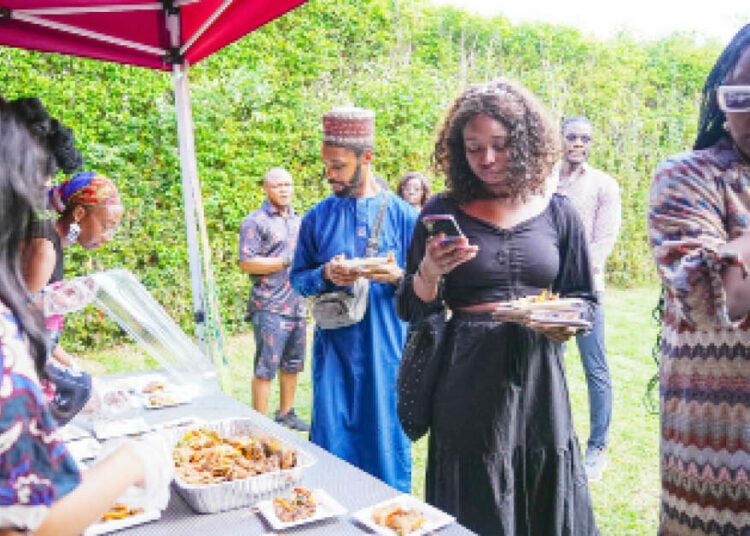Korea Culture Centre Nigeria (KCCN) gave Nigerians a taste of ‘Chuseok’ (South Korea’s mid-autumn harvest festival), with ‘Songpyeon’ (rice cakes), ‘Sanjeok’ (Korean Skewered Meat and Vegetable), and ‘Yukjeon’ (Pan-fried Korean Beef Slices) dishes.
Marked annually on the eighth lunar month, the three-day festival is one of Korea’s three biggest, which sees droves of people travelling from major cities like Seoul to their hometowns across the country to mark the holiday with their loved ones.
Formerly an agrarian society, Korea heavily depended on agriculture, celebrating ‘Chuseok’ as a means of expressing gratitude for the year’s harvest, paying respect to ancestors, and enjoying a grand feast of traditional dishes.
During the feast, family members together perform ‘Charye’ – a memorial service for their ancestors – where they present traditional foods before their ancestors’ images, paying obeisance before them.
They also perform ‘Seongmyo’ – visiting the ancestral graves to clean the sites and pay their respects, followed by ‘Ganggangsullae’ – whereby the women in the family donning their traditional attires dance and sing in a circle praying for a bountiful harvest, and finally, the ‘Dalmagi’ – the act of heading outdoors to view the full moon, make wishes and appreciate the autumn night sky.
7,733 miles away from Korea, Nigerians are marking the ‘Chuseok’ festival with Koreans, not with a massive exodus to hometowns but via Korean cuisine. In particular, ‘Chuseok’ traditional dishes – ‘Songpyeon’, ‘Sanjeok’ and ‘Yukjeon’; in addition to exploring new local environments for Korean cultural events like the Palm d’OR Garden, to create the outdoorsy feel of the festival.
Participants were treated to the moon-shaped rice cakes with sesame seeds, red beans and chestnut fillings (Songpyeon). ‘Sanjeok’, reminiscent of ‘Suya’, is a marinated and pan-fried skewered meat and vegetables dish. The arrangement of the meat and vegetables (green pepper, onions, carrots, etc.) on the stick reflects ‘Obangsaek’ – the five traditional colours of Korea (blue, red, yellow, black and white); and ‘Yukjeon’ – thinly sliced beef seasoned, coated and gently pan-fried to golden perfection.
KCCN Event Manager Yujin Lee noted that while Korea has transitioned from an agrarian to a tech and innovation society, Koreans view the festival more as a big holiday, travelling home to visit their parents and share meals together.
“We want Nigerians to enjoy the day. That is why we tried a new location – the outdoors, and a garden in particular. Abuja holds a considerable number of Korean culture fans, and we are seeking new ways to keep them entertained.
“Our future plans include exploring new locations to host events outside of the centre. I hope they find today’s event interesting and learnt something about Chuseok,” said Lee.





